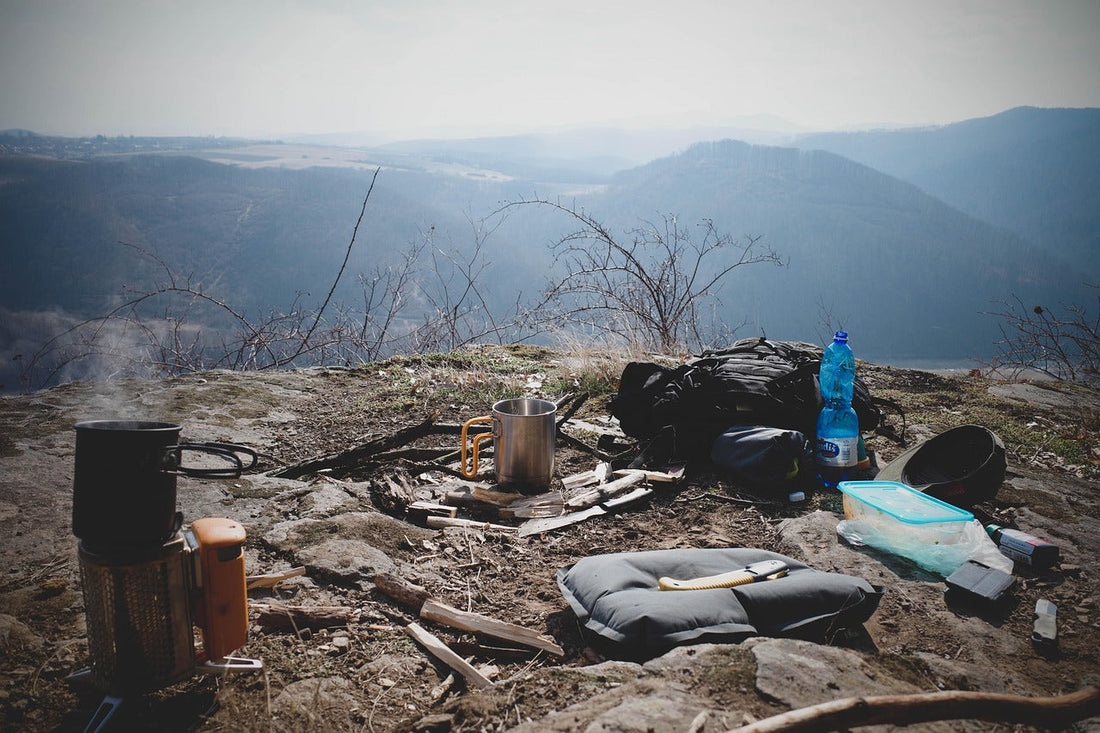
Backpacking 101: How to Handle Waste the Right Way
Share
Heading out into the wild with a pack on your back is one of the best ways to disconnect from the chaos and reconnect with nature. But with that freedom comes a big responsibility — cleaning up after yourself. Trash, food scraps, and human waste don’t just disappear when you’re done with them. If not handled properly, they can ruin the trail for others, hurt wildlife, and even pollute water.
Here’s a camper-friendly guide to keeping the wilderness wild by disposing of waste the right way.
1. The Golden Rule: Pack It In, Pack It Out
Let’s start with the basics. If you bring it with you, plan to take it back out — no matter how small or “natural” you think it is. That includes:
- Snack wrappers and packaging
- Fruit peels and food scraps (yes, even orange peels!)
- Toilet paper and hygiene products
- Wet wipes, bandages, floss, etc.
- Tiny bits of “micro-trash” like corner-cut wrappers or twist ties
Bring a few zip-top bags or odor-proof trash bags so you can stash your waste easily. Some campers even use old chip bags for their trash because they’re durable and seal up tight.
2. What About Going #2?
Let’s talk about poop — because everyone does it, and nobody wants to step in it.
Use a Bathroom If You Can
At trailheads, campgrounds, and popular sites, you’ll usually find a toilet or outhouse. Always use these if they’re available.
No Toilet? Dig a “Cat Hole”
If nature calls and there’s no bathroom in sight, you’ll need to dig a hole:
- Go at least 200 feet from water, trails, and camp
- Dig a hole 6–8 inches deep, about 4 inches wide
- Do your business, then bury it and cover with natural materials like leaves
- Don’t leave toilet paper behind — pack it out!
Pro tip: A backpacking trowel is super light and makes digging easy.
In high-altitude or desert areas where things don’t break down quickly, you may need to use a WAG bag or poop bag. These special bags contain absorbent powder that makes clean-up easier and safer — and yes, you carry them out.
3. Dealing with Toilet Paper and Wipes
This is where many people slip up. Even “biodegradable” TP or wipes can take months (or years!) to decompose.
- Best practice: Use regular TP or wipes and pack them out in a sealed zip-top bag
- Bring a second bag to double-layer the smell and keep things clean
- Want to go green? Try a pee cloth (like a Kula Cloth) — it’s reusable and washable
4. Menstrual Hygiene on the Trail
Ladies, it’s totally doable to manage your period while backpacking.
- Menstrual cups are reusable and low-waste
- If you use pads or tampons, wrap and pack them out like you would TP
- Carry a few zip bags for hygiene waste, and keep hand sanitizer close by
5. Food Waste Isn’t Harmless
It’s tempting to think food is “natural,” so tossing a banana peel into the woods should be fine, right? Nope. Wild animals don’t need our leftovers, and food scraps can throw off local ecosystems or attract bears.
Here’s what to do:
- Scrape all uneaten food into your trash bag
- Strain dishwater through a cloth or screen and pack out the bits
- Scatter leftover (strained) graywater 200 feet from camp and water
- Never bury food — animals will dig it up
If you’re in bear country, store all food and trash in a bear canister or hang bag.
6. Soap and Washing Up
Even “biodegradable” soap can harm plants and water life. Here’s how to stay clean without messing up the environment:
- Wash dishes and yourself 200 feet away from water
- Use a small bowl or bottle to rinse
- Scatter soapy water over a wide area — don’t dump it all in one spot
- Use just a tiny bit of soap — you don’t need much
7. Campfire Trash? Just Say No
Burning trash might seem convenient, but it’s a bad idea. Most things (even paper) don’t burn completely and can release toxic chemicals.
- Don’t toss wrappers, food, or plastic in the fire
- If you must burn paper, do it in a hot, established fire and make sure it turns to ash
- When in doubt — pack it out
8. Don’t Forget the Little Stuff
Before you break camp, do a quick sweep:
- Look for micro-trash: bottle caps, twist ties, food crumbs
- Check for gear you almost forgot: tent stakes, clothes, socks
- Give your site a once-over so it looks like no one was ever there
A good tip is to leave your camp cleaner than you found it.
9. Share the Knowledge
If you see another camper making a mistake, don’t lecture — help them out. Offer a trash bag, share what you know, or even model good habits. We all learn by example.
Final Thoughts
Taking care of your waste isn’t just about keeping your pack clean — it’s about protecting the wild spaces we love. With a little effort and the right gear, you can leave no trace and still have an amazing trip.
So pack smart, dig those cat holes, and take pride in being the kind of camper who keeps nature awesome — for yourself and everyone else who comes along.
